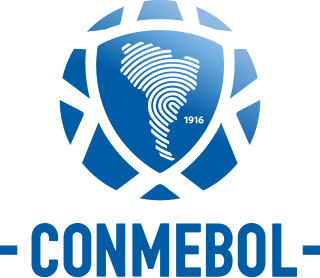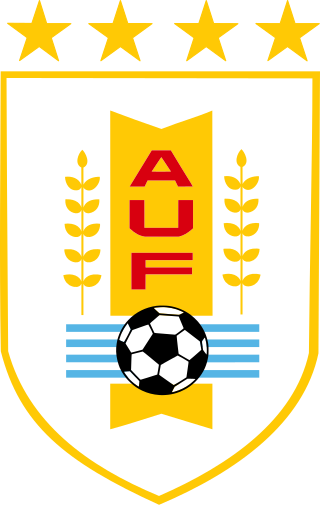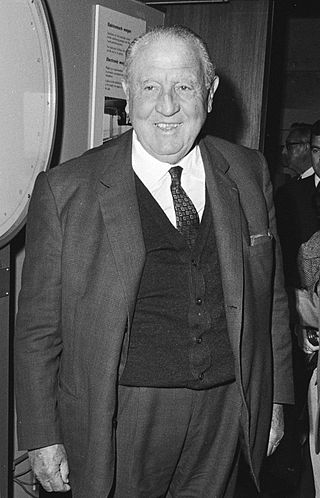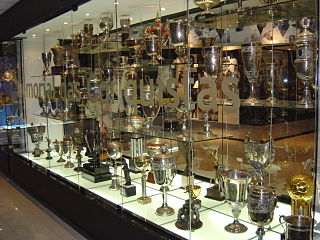
Sociedade Esportiva Palmeiras, commonly known as Palmeiras, is a Brazilian professional football club based in the city of São Paulo, in the district of Perdizes. Palmeiras is one of the most popular clubs in South America, with around 18 million supporters and more than 130,000 affiliated fans. Despite being primarily a football club, Palmeiras competes in a number of different sports. The football team plays in the Campeonato Paulista, the state of São Paulo's premier state league, as well as in the Brasileirão Série A, the top tier of the Brazilian football league system.

The CONMEBOL Libertadores, also known as the Copa Libertadores de América, is an annual international club football competition organized by CONMEBOL since 1960. It is the highest level of competition in South American club football. The tournament is named after the Libertadores, the leaders of the Latin American wars of independence, so a literal translation of its former name into English is "America's Liberators Cup".
The European/South American Cup, more commonly known as the Intercontinental Cup and from 1980 to 2004 as the Toyota European/South American Cup for sponsorship reasons, was an international football competition endorsed by UEFA (Europe) and CONMEBOL, contested between representative clubs from these confederations, usually the winners of the UEFA Champions League and the South American Copa Libertadores. It ran from 1960 to 2004, when it was succeeded by the FIFA Club World Championship, although they both ran concurrently in 2000.

The South American Football Confederation is the continental governing body of football in South America and it is one of FIFA's six continental confederations. The oldest continental confederation in the world, its headquarters are located in Luque, Paraguay, near Asunción. CONMEBOL is responsible for the organization and governance of South American football's major international tournaments. With 10 member soccer associations, it has the fewest members of all the confederations in FIFA.

The Uruguay national football team represents Uruguay in international men's football, and is controlled by the Uruguayan Football Association, the governing body for football in Uruguay. The national team is commonly referred to as La Celeste.

Santiago Bernabéu de Yeste was a Spanish footballer who played for Real Madrid as a forward. He is widely regarded one of the most important figures in the history of Real Madrid, having served as its president for 35 years, from 11 September 1943 until his death in 1978.

The CONMEBOL Sudamericana, named as Copa Sudamericana, is an annual international club football competition organized by CONMEBOL since 2002. It is the second-most prestigious club competition in South American football. CONCACAF clubs were invited between 2004 and 2008. The CONMEBOL Sudamericana began in 2002, replacing the separate competitions Copa Merconorte and Copa Mercosur by a single competition. Since its introduction, the competition has been a pure elimination tournament with the number of rounds and teams varying from year to year.

The Latin Cup was an international football tournament for club sides from the Southwest European nations of France, Italy, Spain, and Portugal. In 1949 the football federations came together and requested FIFA to launch the competition. European clubs could not afford hefty travel costs so competition was staged at the end of every season in a single host country. The competition featured two semi-finals, a third place play-off and a final.
This page indexes the individual year in association football pages. Each year is annotated with one or more significant events as a reference point.

Rugby union is a growing team sport in Spain. As of 2019, there were 37,241 registered rugby union players in Spain, playing for 332 clubs in various divisions. The sport's governing body in Spain, the Spanish Rugby Federation, was founded in 1923. It joined the International Rugby Board in 1988, and is also a member of Rugby Europe.

The Copa Rio was the first intercontinental club football tournament with teams from Europe and South America, having been held on two occasions, in 1951 and 1952, in Brazil. Both editions were organised and endorsed by the Brazilian Sports Confederation, the then Brazilian FA and sports main body. The tournament is often regarded in Brazil as an official tournament, at least as far as the Brazilian clubs are concerned. The name Copa Rio, Portuguese for Rio Cup, was a homage to Rio de Janeiro City. The 1951 edition of the competition was also hailed as "Club World Cup" or "World Champions Cup" by the Brazilian FA and press. Though some previous club competitions may have been hailed as "the club world contest", Copa Rio was the first attempt at creating a Club World Cup with intercontinental reach.

Santos FC is a football club based in Santos, that competes in the Campeonato Paulista, São Paulo's state league, and the Campeonato Brasileiro Série A or Brasileirão, Brazil's national league. The club was founded in 1912 by the initiative of three sports enthusiasts from Santos by the names of Raimundo Marques, Mário Ferraz de Campos, and Argemiro de Souza Júnior, and played its first friendly match on June 23, 1914. Initially Santos played against other local clubs in the city and state championships, but in 1959 the club became one of the founding members of the Taça Brasil, Brazil's first truly national league. As of 2010, Santos is one of only five clubs never to have been relegated from the top level of Brazilian football, the others being São Paulo and Flamengo.
The Copa Latina is a tournament organized by the Peruvian Volleyball Federation and Frecuencia Latina. This tournament serves as preparation for women national teams from all over the world to different Volleyball competitions, mainly the Pan-American Volleyball Cup. The Cup features Peru's national team and three invitees, the first two Cups only had teams from the Americas but since the third cup, European and Asian teams are invited also.
The Latin Cup was an international basketball tournament for club sides from the Latin European nations of France, Italy, Spain, and from Switzerland or Portugal, in a similar way than the Latin Cup of football.
The 1949 Latin Cup was the first edition of the annual Latin Cup which was played by clubs of the Southwest European nations of France, Italy, Portugal, and Spain. The tournament was hosted by Spain, and the Spanish club FC Barcelona was the winner of the tournament after defeating Sporting CP by a score of 2–1 in the final match.
The 1950 Latin Cup was the second edition of the annual Latin Cup which was played by clubs of the Southwest European nations of France, Italy, Portugal, and Spain. The tournament was hosted by Portugal, and the Portuguese club SL Benfica was the winner of the tournament after defeating FC Girondins de Bordeaux by a score of 2–1 in the final match replay after sudden death extra time.
The 1951 Latin Cup was the third edition of the annual Latin Cup which was played by clubs of the Southwest European nations of France, Italy, Portugal, and Spain. The tournament was hosted by Italy, and the Italian club AC Milan was the winner of the tournament after defeating Lille OSC by a score of 5–0 in the final match.
The 1953 Latin Cup was the fifth edition of the annual Latin Cup which was played by clubs of the Southwest European nations of France, Italy, Portugal, and Spain. The tournament was hosted by Portugal, and the French club Stade de Reims was the winner of the tournament after defeating AC Milan by a score of 3–0 in the final match.
The 1957 Latin Cup was the eighth and final edition of the annual Latin Cup. It was contested by the domestic league champions the Southwest European nations of France, Italy, Portugal, and Spain. The clubs which competed in the tournament were AS Saint-Étienne, AC Milan, SL Benfica, and Real Madrid CF.









